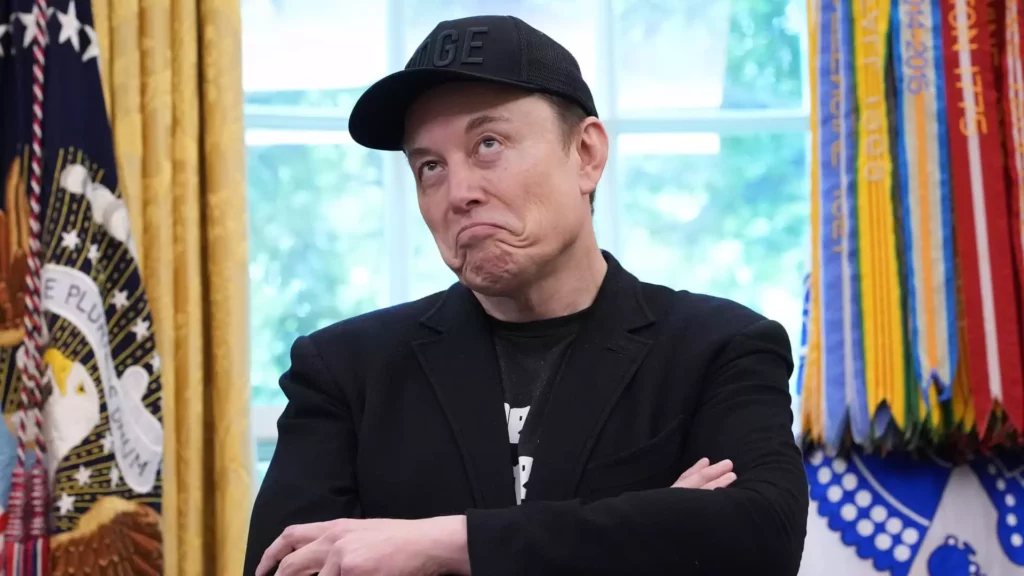In an era where government boasting of fiscal prudence often masks its shortsightedness, Elon Musk’s recent harsh critique highlights a deep flaw in our political landscape: the obsession with immediate budget cuts at the expense of long-term progress. The narrative that austerity measures and austerity-driven policies are inherently beneficial is a dangerous illusion. Instead of fostering growth and innovation, these policies systematically undermine industries essential for a sustainable and competitive future. Musk’s outspoken opposition to the government’s spending bill spotlights this misguided approach, positioning him as a voice for a pragmatic, forward-looking perspective that challenges the status quo.
He implicitly argues that true responsibility does not lie in neglecting investments that fuel the next industrial revolution—renewable energy, electric vehicles, and space technology—but in maintaining a balanced vision that recognizes their pivotal role in economic resilience. The political tendency to prioritize short-term fiscal metrics above all else often results in policies that cripple innovation ecosystems. When state authorities impose steep cuts on renewable energy programs or EV incentives, they aren’t just trimming budgets; they are sabotaging future economic opportunities rooted in technological breakthroughs. Musk’s vocal resistance unveils an uncomfortable truth: that our policymakers are abandoning long-term strategic thinking and clinging to superficial fiscal discipline.
Short-Sighted Politics versus Long-Term Prosperity
The broader implication of this debate is a fundamental misunderstanding of what true prosperity entails. To many politicians, balance sheets and deficit numbers are the ultimate measure of success, but this myopia ignores the transformative capacity of clean energy and technological advancements to redefine our economic landscape. Musk’s critique goes beyond partisan bickering—he highlights a perilous trend where political expediency diminishes future potential in favor of immediate savings. Such policies threaten the very industries that could lead America into a new era of dominance—industries that require stability, support, and consistent innovation-friendly policies.
From a center-right perspective, it’s evident that fiscal responsibility must be paired with strategic investments. Cutting incentive programs under the guise of saving money is equivalent to shooting ourselves in the foot. This short-sightedness perpetuates the misconception that we can achieve sustainable growth without sustained support for innovative industries. Musk’s stance emphasizes that responsible governance involves making difficult choices—prioritizing investments that secure economic leadership rather than caving to populist notions of austerity that undermine future competitiveness.
An Entrepreneur’s Perspective on Political Recklessness
Musk’s direct engagement in political discourse exemplifies the ethic of entrepreneurial leadership that refuses to accept defeat in the face of shortsighted policies. His companies, Tesla and SpaceX, are not merely business ventures; they are manifestations of a vision to reshape industries and solve global problems through innovation. When lawmakers slash incentives for electric vehicles or defund renewable energy programs, they threaten to extinguish the very momentum that has pushed these industries forward.
From an ideological standpoint, this approach aligns with a nuanced, center-right philosophy: support for free enterprise balanced with strategic government intervention. It recognizes that successful economies are built upon a foundation of innovation, which requires stability and encouragement—not sporadic policy swings driven by political partisan interests. Musk’s vocal criticism becomes a societal eye-opener—reminding us that responsible policies should foster, not hinder, technological progress.
This case also sheds light on the need for political leadership rooted in vision rather than mere fiscal discipline. The refusal to blindly accept cuts that destroy future growth potential demonstrates a conviction that innovation is the bedrock of a resilient economy. The question remains whether policymakers will realize that their obsession with short-term fiscal metrics is a calculated gamble with our collective future, or whether they will continue to prioritize ideological dogma over pragmatic progress.
The Danger of Complacency in a Changing World
Musk’s critique lays bare an unsettling truth: many current political decisions are motivated by a misplaced faith in austerity that dismisses the importance of steady investments in innovation. As global competitors ramp up their commitment to clean technology and space exploration, the United States risks falling behind if it continues to slash programs vital for this transition. His stance embodies a call to action—an insistence that fiscal responsibility must be redefined to include strategic investments that guarantee long-term prosperity.
In an ever-evolving geopolitical landscape, pragmatic, forward-thinking policies are not just preferable—they are necessary. Musk’s willingness to challenge entrenched political interests reveals an understanding that sustainable growth depends on courageous leadership willing to challenge outdated dogmas. His position advocates for a balanced approach—where fiscal discipline is intertwined with a purposeful commitment to technological advancement, recognizing that the future belongs to those who dare to lead, not those who cling to failed notions of austerity.









Leave a Reply